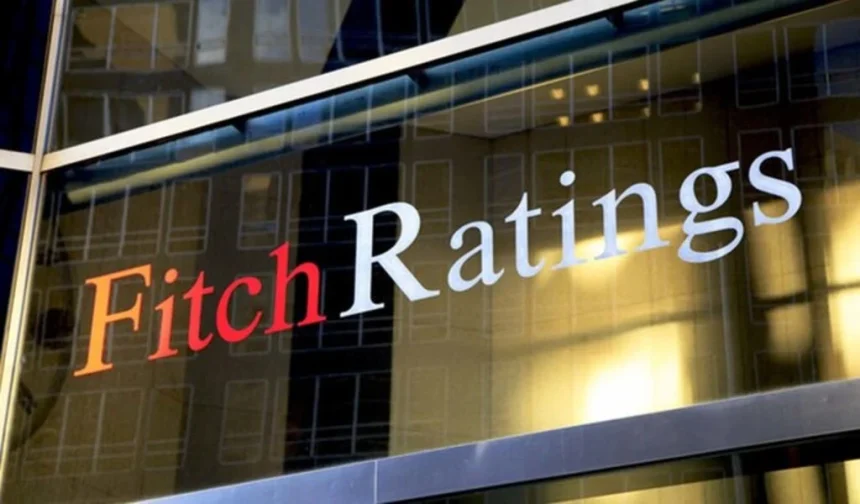(CTN News) – Fitch Ratings, a global credit rating agency, upgraded Pakistan’s long-term foreign currency issuer default rating (IDR) to ‘CCC+,’ indicating an increase in the country’s foreign exchange reserves, while the central bank cut the key interest rate by 100 basis points to 19.5 percent, meeting investor and analyst expectations.
Fitch Ratings gives independent assessments on the creditworthiness of issuers and their debt obligations by assessing the likelihood of repayment, and assigns ratings to assist investors in determining the risk of lending to or investing in a specific firm.
The upgrading indicates increased confidence in the sustained availability of external funding, in light of Pakistan’s staff-level agreement with the International Monetary Fund (IMF) on a new 37-month, $7 billion extended fund facility.
“Strong performance on the previous, more temporary IMF arrangement helped the country narrow fiscal deficits and rebuild foreign exchange (FX) reserves, and further improvements are likely,” according to the agency’s report.
However, it stated that the South Asian country’s significant financing requirements put it in a “vulnerable position” if it fails to adopt difficult reforms that could jeopardise program performance and funding.
“The government will have to obtain new funding assurances from bilateral partners, chiefly Saudi Arabia, the United Arab Emirates and China, totalling about USD 4-5 billion over the duration of the EFF,” the article stated.
“We believe this will be achievable, given the strong past record of support and significant policy measures in the recent budget for the fiscal year ending June 2025 (FY25).”
According to Fitch, the existing Pakistani government intends to address vulnerabilities in the country’s tax system, energy sector, and state-owned firms under the new EFF by increasing agricultural taxes.
“We forecast the current account deficit to stay relatively contained at about $4 billion (about 1 percent of GDP) in FY25, after about $700 million in FY24, given tight financing conditions and subdued domestic demand,” according to the organisation.
Finance Minister Muhammad Aurangzeb stated that the rating upgrading occurred against the backdrop of currency stabilisation, an increase in foreign reserves, and a fall in inflation in Pakistan.
“This reflects the journey we’ve been on for the last four to five months to achieve greater macroeconomic stability. “Especially now that the staff-level agreement [with the IMF] is in place, it has played a very important role in terms of assisting with this upgrade,” he added in televised remarks.
The minister stated that all macroeconomic indicators in the country were “positive” and “in the right direction.”
“This [rating upgrade] is important because if we are to make this the last [IMF] program, there has to be a road to the market,” he told reporters.
“As I also mentioned yesterday, export-led growth, foreign direct investment, which is again very much dependent on sovereign ratings, especially that foreign direct investment that can take us to exports and finally international capital markets, therefore, this particular upgrading is the beginning of that journey.”
The Fitch report came as Pakistan’s key interest rate was slashed by 100 basis points to 19.5 percent, according to the central bank.
Finance Minister Aurangzeb said the rate drop is “very good news for the industry.”
“As inflation gradually decreases, we expect the policy rate to fall further this fiscal year. So that we may resume private sector credit offtake, which has been stagnating for a long time,” he remarked on television.
“Both these developments that happened today, they are very positive for the economy as we go forward.”
According to the central bank chief, the decision to lower policy rates was made in response to falling inflation, an improving current account deficit, and an increase in central bank reserves.
“The current account deficit was $17.5 billion in fiscal year 22, however it was reduced to $3.3 billion in 2023. This year, the figure is merely $700 million, or 0.2 percent of GDP,” State Bank of Pakistan (SBP) Governor Jameel Ahmed stated during a news conference.
“Along with this, state bank reserves have improved. Our reserves were $4.4 billion in June 2023, and they climbed to $9.5 billion in June of this year.”
He stated that the country’s oil imports had gradually declined, while an increase in external account inflows had boosted the current account.
“Oil imports, which were at $2.3 billion in the first quarter of 2023, came down to $1.4 billion in the last quarter (Apr-Jun 2024),” Ahmed informed us. “This fiscal year, our GDP growth, which was 2.4 percent in the outgoing year, our assessment is that it will be between 2.5 percent and 3.5 percent.”
Similarly, the SBP head stated that the current account deficit was expected to be 0-1 this fiscal year, with average inflation at 11.5-13.5 percent.














